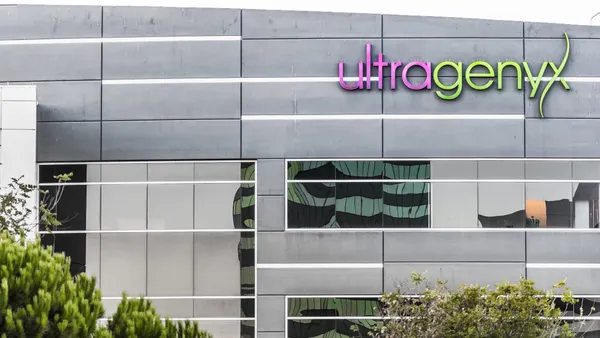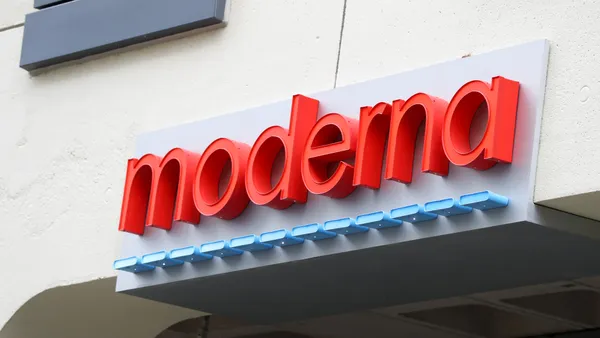Dive Brief:
- An experimental immune disease drug from Moonlake Immunotherapeutics fell short of investors’ expectations in a pair of closely watched clinical trials, sending shares of the Swiss biotechnology company falling more than 80% on Monday.
- Both late-stage trials focused on patients with a chronic inflammatory skin condition known as hidradenitis suppurativa. In one, about 35% of participants treated with the Moonlake's drug, sonelokimab, had a significant reduction in disease symptoms after four months, versus about 18% of placebo recipients. While that result met statistical significance, the difference between the two groups wasn’t as large as executives and investors had hoped.
- Sonelokimab also failed to meet its main objective in the second study, a result the company blamed on a “higher than expected” placebo response in a statement Sunday. Moonlake aims to discuss the approval path with regulators while the trials continue but, following the results, multiple Wall Street analysts expressed skepticism about a quick clearance as well as the drug’s sales potential.
Dive Insight:
Moonlake had been hoping the study results would prove its medicine is a step forward in treatment for hidradenaitis suppurativa — a skin disease that causes painful abscesses and tissue scarring, and that analysts see as a still-untapped opportunity for drugmakers.
Sonelokimab binds to two inflammatory cytokines as well as a third protein, albumin, that are involved in the disease’s progression. Moonlake has said the way in which the drug gets at those targets, as well as its small molecular size, might help it be more potent and longer lasting than available biologics like AbbVie’s Humira, UCB’s Bimzelx and Novartis’ Cosentyx.
Data leading up to late-stage testing suggested Moonlake’s drug had an “optimal profile” compared to so-called IL-17 inhibitors like Bimzelx and Cosentyx, Leerink Partners analysts wrote in a January report. Moonlake reportedly turned down a buyout offer from Merck & Co. this year, too.
Yet sonelokimab didn’t demonstrate the kind of clear-cut dose response in mid-stage testing that investors like to see. In the meantime, the 2023 and 2024 approvals of Cosentyx and Bimzelx, respectively, added pressure for the company not just top its placebo comparator in testing, but show sonelokimab might be competitive with, or even superior to those medicines as well.
The results disclosed Sunday, described by analysts as “disappointing” and “undifferentiated,” all but erased those hopes. The magnitude of the effects observed looks “uncompetitive” with Bimzelx, “likely relegating sonelokimab to a much narrower role” while casting doubts on its potential against other diseases, wrote RBC Capital Markets’ analyst Brian Abrahams.
The data have also “introduced uncertainty” around Moonlake’s approval path and commercial outlook, added Leerink’s Thomas Smith.
In its statement, Moonlake noted how pooled results from both studies demonstrated a “clinically meaningful and statistically significant improvement” across all trial goals and how, in the test that failed, placebo recipients responded at a much higher rate than history suggested they would. Executives will discuss the results with regulators, including the “analytical strategies” now necessary given the placebo group’s performance.
However, a “clear path to approval” is likely “off-the-table in the near term,” wrote Stifel analyst Alex Thompson.
Moonlake’s share price plummeted from about $62 apiece to less than $10 early Monday.
















